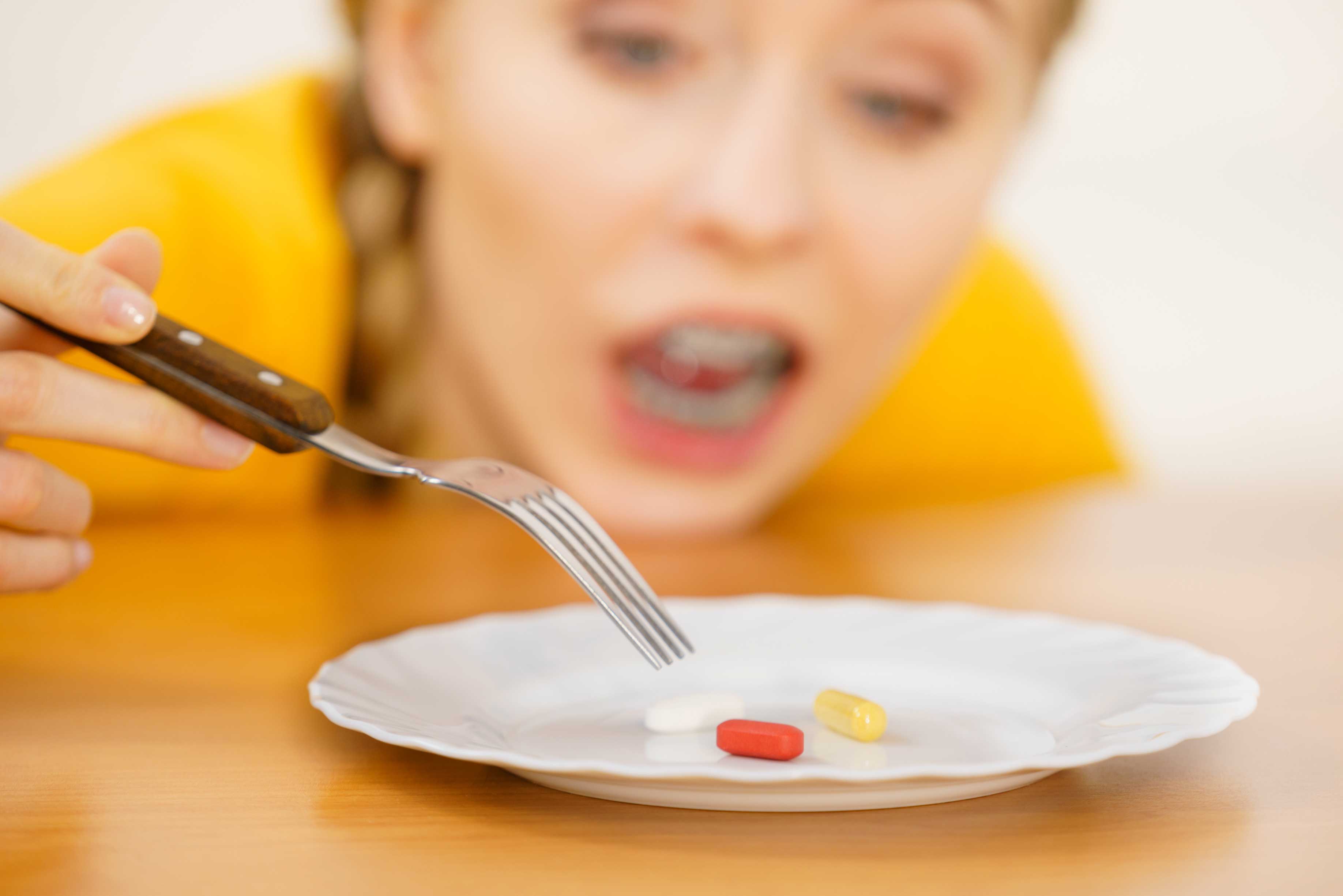<< Back
Weight Loss Aids: Avoid These 3 Herbal Supplements, 4 Stimulants

July 24, 2018
 Dr. Devika Umashanker
Dr. Devika Umashanker
Have you considered trying natural weight-loss supplements?
There is no shortage of products that promise to melt away the pounds, but how do you find the best one? It’s difficult because many weight-loss supplements are produced by the very people selling the product. So it’s important to gather unbiased and current information about the weight-loss pills available. Speak to your health-care provider.
Herbal or natural supplements that claim to help you lose weight come from plant sources. These herbal supplements are often labeled “100% Natural” or “Healthy.” Because a product is natural doesn’t mean it is safe. And just because a supplement is “healthy” doesn’t mean it is effective.
Several recent studies on dietary supplements found that consumers who buy herbal supplements may not get the product advertised on the label. The state of New York has cited several large retailers for selling products that were not as advertised.
Here are the three most common herbal supplements I’m asked about to assist with weight loss:
Garcinia Cambogia
Even though it is one of the most popular products on the market, unfortunately, the herbal supplement has been shown to have “little to no effect on weight loss,” according to, among others, the National Institutes of Health Office of Dietary Supplements, Memorial Sloan Kettering Cancer Center and the National Center for Complementary and Integrative Health.
Green Tea Extract
This herbal supplement is found on almost every drugstore shelf. Unfortunately, many research studies that investigated the extract’s effectiveness have not been high quality. You may not experience side effects if you drink green tea or take a green tea supplement but the NIH suggests that green tea may only provide a modest weight loss benefit, if any at all.
Raspberry Ketone
Another popular herbal supplement: But there have been no high-quality studies to demonstrate it’s effectiveness for weight loss. No serious side effects have been reported but this diet aid may harm your budget because there is little evidence to show that it actually helps you lose weight
On the flip side, some ingredients in over-the-counter diet products are known to cause harm and the Food and Drug Administration warns not to use.
Examples of these products:
- Ephedrine is the main active ingredient of herbal ephedra. The FDA does not allow the sale of medicines that contain ephedrine or ephedra due to serious side effects, including strokes and heart attacks.
- BMPEA is a stimulant related to amphetamines. Supplements with the herb Acacia rigidula labeled on the packaging often contain BMPEA. This chemical can lead to health problems such as dangerous high blood pressure, heart rhythm problems, memory loss and mood problems.
- DMBA and DMMA are stimulants that are similar chemically. They have been found in fat-burning and workout supplements. DMBA is also known as AMP citrate. Both chemicals can cause nervous system and heart problems.
Bottom Line
Before you take any supplement, be sure to consult your healthcare provider to make sure that the product is safe for you to use.
Dr. Devika Umashanker is an Obesity Medicine Specialist at Hartford Healthcare Medical Group.